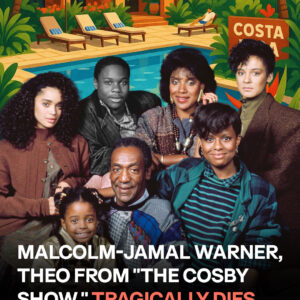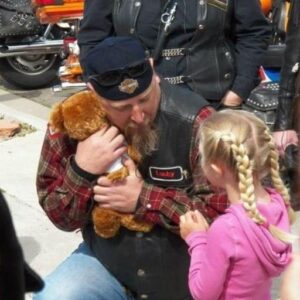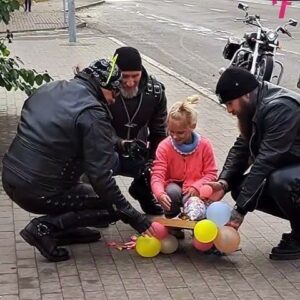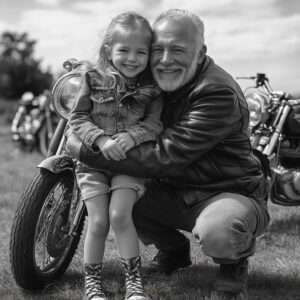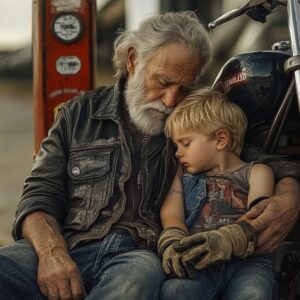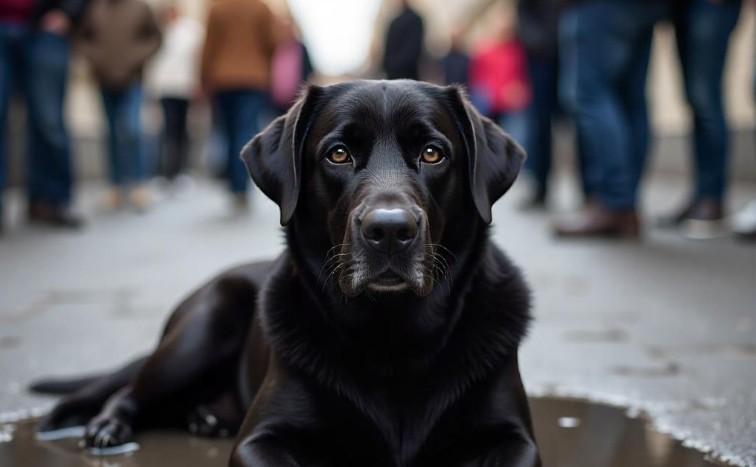
They say a hero doesn’t always walk on two legs. Sometimes, a hero has four paws, a wagging tail, and the kind of courage that shines brightest when chaos grips our world.
It started when the river crept over its banks and swallowed the streets of our town. What began as a rising drip along the shore turned into a roaring torrent that sent people scrambling for higher ground. Cars bobbed like corks. Mailboxes vanished beneath the brown water. And families huddled on rooftops, watching helplessly as their homes slipped away.
Amid that panic, one figure emerged—brave, silent, and driven by a single, unbreakable instinct to help. Witnesses later said they would never forget the sight: a man clinging to the wreckage of a tree trunk, eyes wild, arms wrapped around the broken wood as the current fought to pull him under. He was trapped too far from shore for anyone to reach him by hand. The water churned around him, its roar louder than any hurricane.
Volunteers in a small rescue boat rowed toward him, but the wind and rain slowed them. Every minute felt like an hour. The man’s grip was slipping. His knuckles were white. No one dared call out to him—no one wanted him to panic further.
That’s when the dog appeared.
He burst onto the flooded street, fur plastered to his lean frame, paws paddling through the rising swirl. He carried no name on the winds that howled around him, but people later called him Valor, because that one word seemed to fit. No one could say where he came from. No owner came looking. No tag dangled from his collar—he had none. He just showed up, as if he had chosen that moment for heroism.
Onlookers watched in stunned silence as Valor plunged into the water. He didn’t hesitate. He didn’t look back for instructions. He trusted his own heart and the power of his paws. He dove into the river and began swimming against the current, nose pointed forward, eyes fixed on the drifting tree where the man clung.
The water swept Valor downstream and then back again. It tossed him, threw him against debris, but he never gave up. His strokes were strong—powerful enough to cut through logs and swirling eddies. On the bank, people shouted, “He can’t make it! He’s going under!” But Valor fought on, paddling closer and closer until he reached the man.
Then something miraculous happened. Valor nudged the man in the ribs with his slick, cold nose, guiding him toward a half‑submerged limb he could cling to. Valor barked—sharp, urgent barks that echoed across the river. Every bark was a message: Stay calm. Help is coming. Hold on tight.
In that moment, everything else vanished. The wind died down. The roar of the river faded. All anyone could hear was Valor’s bark and the soft whisper of the man’s ragged breathing. They watched as the dog pressed close to the man’s side, leaning into him as if offering his body as an extra anchor. He planted his front paws on the man’s splintered arm, bracing him against the flow. The man wrapped his arms around Valor’s neck and held on like his life depended on it—because it did.
By then, the rescue boat had made progress. The volunteers had cut through a tangle of branches, edging ever nearer. They raised their arms, shouting encouragement. Valor answered with another fierce bark, then looked back over his shoulder, as if to check on his rescuers. Then he turned back to the man, guiding him away from the dead wood and toward a safer stretch of riverbank.
The boat reached them at last. Volunteers leaned over the side, arms outstretched. They grabbed the man by the armpits and pulled him aboard. He was soaked, shivering, and shaking with relief. They wrapped him in blankets and gripped his hands, telling him he was safe now.
But Valor was not on that boat.
No one saw him swim back to the tree or slip beneath the water. One moment he was there, the next he was gone. The volunteers searched the nearby water, scanning with flashlights, calling his name. But Valor had gone to parts unknown, deeper into the current where rescue boats could not reach.
An hour later, the volunteers combed a bend sixty yards downstream and found him. He lay motionless on the muddy bank, still facing the direction where he had saved the man. His fur was matted with muck; his eyes were closed in rest. They gently lifted him, checked for a chip—nothing. No collar. No tag. He belonged to nobody but the river itself.
They wrapped him in blankets and carried him back to the command post. Firefighters and paramedics stood by, solemn. One by one, they passed by him, many with tears in their eyes. Because they knew what had happened. They knew that Valor had given his life to save a stranger. They knew that true bravery did not require recognition or applause—only the willingness to leap into danger when someone’s life hung in the balance.
Some tried to comfort Valor, stroking his head. Others knelt and held his paws, praising him for the final, selfless act. One child left a single daisy on his chest. A rescue diver produced a small badge and pinned it to Valor’s blanket: “Honorary Fire Department K9—In Memoriam.”
They didn’t know his real name. They didn’t know who trained him or where he slept at night. He was a stray, an outsider, an angel in fur. And yet he became the hero the town needed that day—a silent guardian who spoke only through action.
As news of Valor’s sacrifice spread, the community gathered. They left toys and treats and flowers at the riverbank near the tree. They wrote his name on posters: VALOR. Beneath it, they painted a paw print in bright white. They chalked messages on the pavement: “Thank you, Valor,” and “You Are Loved.”
A local newspaper ran his picture, taken by a witness who had snapped a shot of Valor in mid‑swim. The headline read: “Silent Hero Lost in Flood Waters.” The story caught on social media. People from other towns sent messages of support. One family even drove in from two counties over to leave a bag of dog food and a note: “We wish we could have known you, friend. Rest in peace.”
In the days that followed, the rescue teams held a small ceremony. They dedicated a plaque to Valor and mounted it on a rock near the river bend. The plaque read:
“To our bravest rescuer, Valor, who leaped into danger to save a life. You showed us that true heroes come on four paws and a pure heart. Your courage will never be forgotten.”
At the dedication, volunteers shared their memories. One paramedic, choking back tears, spoke of the man who survived. The man now had a name—David Parker—and he spoke too. He said that on the tree, when all seemed lost, he felt Valor’s warm, wet nose against his arm and heard a bark that cut through the storm. He said it reminded him of home. He said Valor gave him hope when hope was gone.
Afterward, people placed flowers at the plaque. A firefighter left his helmet. A child pinned a ribbon. Even members of the local dog training club came with their own pups, setting them at attention, tails low in respect.
Yet despite all the praise and memorials, Valor never sought the spotlight. He never wore a uniform. He never asked for a medal. He simply did what was needed, then slipped away into legend.
And today, as the river returns to its banks and life begins to mend, we remember Valor. We remember that heroes don’t always wear capes. They don’t always walk upright. Sometimes they arrive on four legs, with eyes full of purpose and a heart bigger than any storm.
The town remains forever changed. We are more careful of stray dogs now, more aware that life can be lost or saved in a single moment. We keep river dogs on leads, we teach our children to bow to rescue animals, and we keep a watchful eye on the currents.
But most of all, we carry Valor’s story in our hearts. Whenever we hear the river’s roar, we remember a silent warrior who braved the flood to save another soul. Whenever we see a dog in a storm, we remember that courage can come from anywhere, even the simplest, wordless creature.
And as the sun sets on the water, casting orange light on the plaque that bears his name, we know this truth: a hero’s legacy never drifts away. It remains, like a pawprint in the mud, a testament to love, sacrifice, and the power of a single act of kindness.
